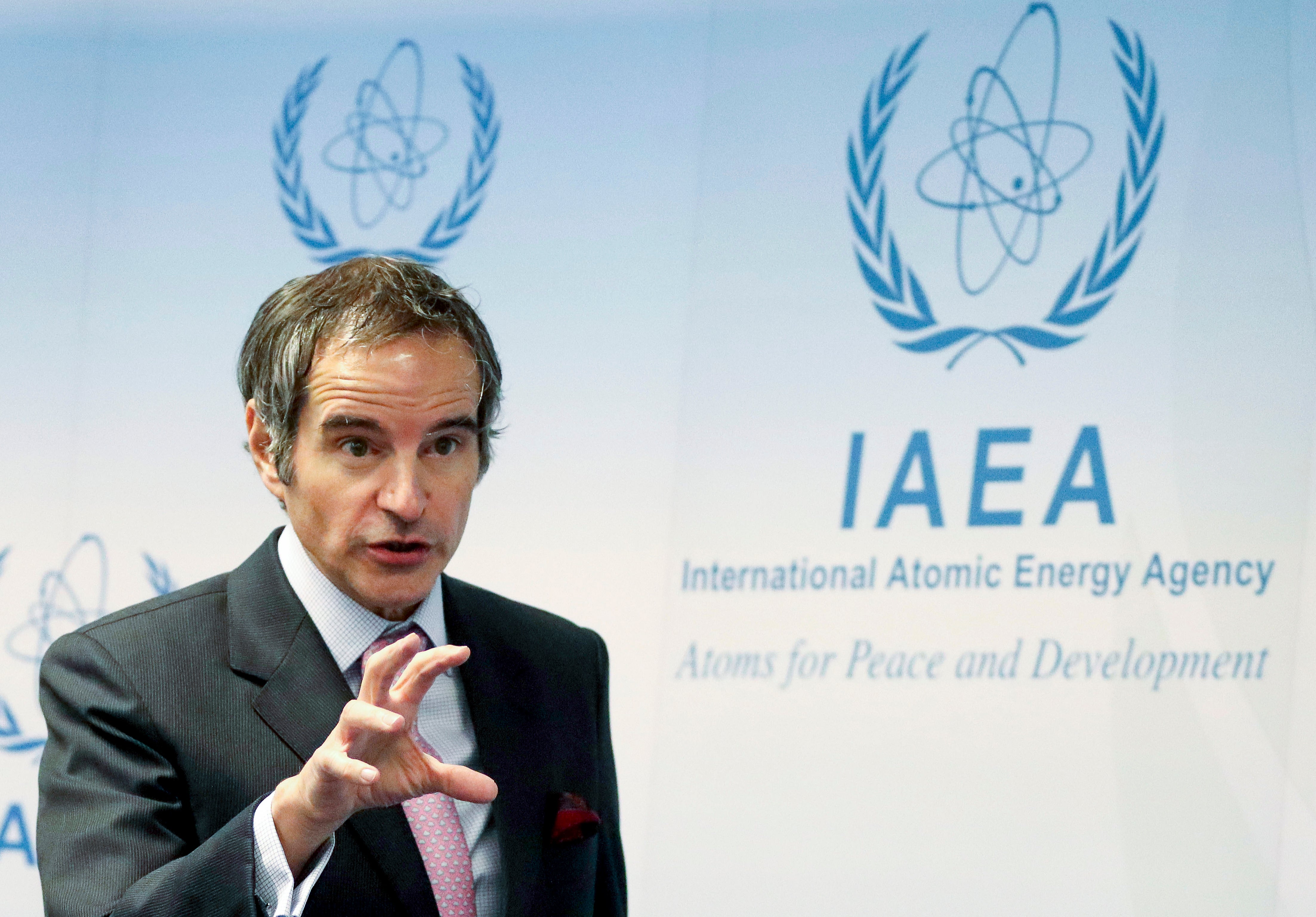UN atomic watchdog: Deal with Iran key to full inspections
The head of the International Atomic Energy Agency says a temporary agreement with Iran to allow United Nations inspectors continued access to the country’s atomic facilities lays the groundwork for the return to full verification measures if and when Tehran allows it

A temporary agreement with Iran to allow United Nations inspectors continued access to the country's atomic facilities is less comprehensive than before, but lays the groundwork for the return to full verification measures if and when Tehran allows it, the head of the International Atomic Energy Agency said Monday.
Iran began restricting international inspections last week, but under a last-minute deal worked out during a trip to Tehran by Rafael Grossi, the head of the Vienna-based U.N. atomic watchdog some access was preserved.
Under the agreement, Iran will no longer share surveillance footage of its nuclear facilities with the IAEA but it has promised to preserve the tapes for three months. It will then hand them over to the IAEA if it is granted sanctions relief. Otherwise, Iran has vowed to erase the tapes, narrowing the window for a diplomatic breakthrough.
Speaking to reporters after adressing member nations, Grossi said the deal meant inspectors could still keep track of the quantity of enriched uranium, for example, but have lost their view of other activities such as Iran's mining operations and its research and development.
That means they're not able to form as complete a picture of Iran's nuclear program, Grossi suggested.
“With a nuclear program which has the breadth and depth of the Iranian one — complex, big, sophisticated — we need everything,” he said.
Inspections are a critical part of the landmark 2015 nuclear deal with world powers, known as the Joint Comprehensive Plan of Action, or JCPOA.
Since President Donald Trump pulled the U.S. unilaterally out of the deal in 2018, Iran has been slowly increasing its violation of the pact by enriching more uranium than allowed, and to a greater purity than allowed, among other things.
The violations have been intended to put pressure on the other signatories to the deal — Britain, France, Germany, Russia and China — to come up with ways to offset the economic devastation caused by American sanctions, but so far they have not been able to come up with a solution suitable to Iran.
U.S. President Joe Biden has said he is ready to join talks with Iran and world powers to discuss a return to the deal. The new restrictions on inspections complicate matters, and, in effect, set the clock ticking on coming up with some sort of a resolution.
In his address, Grossi told member nations that more than just allowing sufficient inspections to continue, the access agreed under the “temporary bilateral technical understanding” he reached with Iran provides his teams with the continuity necessary to resume full inspections later if there is a new agreement.
“I want to emphasize that it is a temporary technical understanding and that it is compatible with Iranian law,” Grossi said, according to prepared remarks provided by the IAEA, “It is to enable the Agency to resume its full verification and monitoring of Iran’s nuclear-related commitments under the JCPOA if and when Iran resumes its implementation of those commitments.”
On the weekend, Iran turned down a European Union invitation to host joint talks with the U.S. about the nuclear deal, saying “the time isn't ripe.” The U.S. said, however, it remains open to meet.
EU Commission spokesman Peter Stano said Monday that EU foreign policy chief Josep Borrell “is still prepared to organize a meeting with all parties.”
“For us, as coordinators of the JCPOA, what is important is to continue the engagement,” he said. “We took note of their announcement that they don’t see the time right, right now, for such a meeting but the aim ... remains to facilitate the full implementation of the JCPOA, and he remains ready to convene all the participants and the U.S. for informal consultations when the time is right.”
_____
Samuel Petrequin in Brussels contributed to this report.
Bookmark popover
Removed from bookmarks